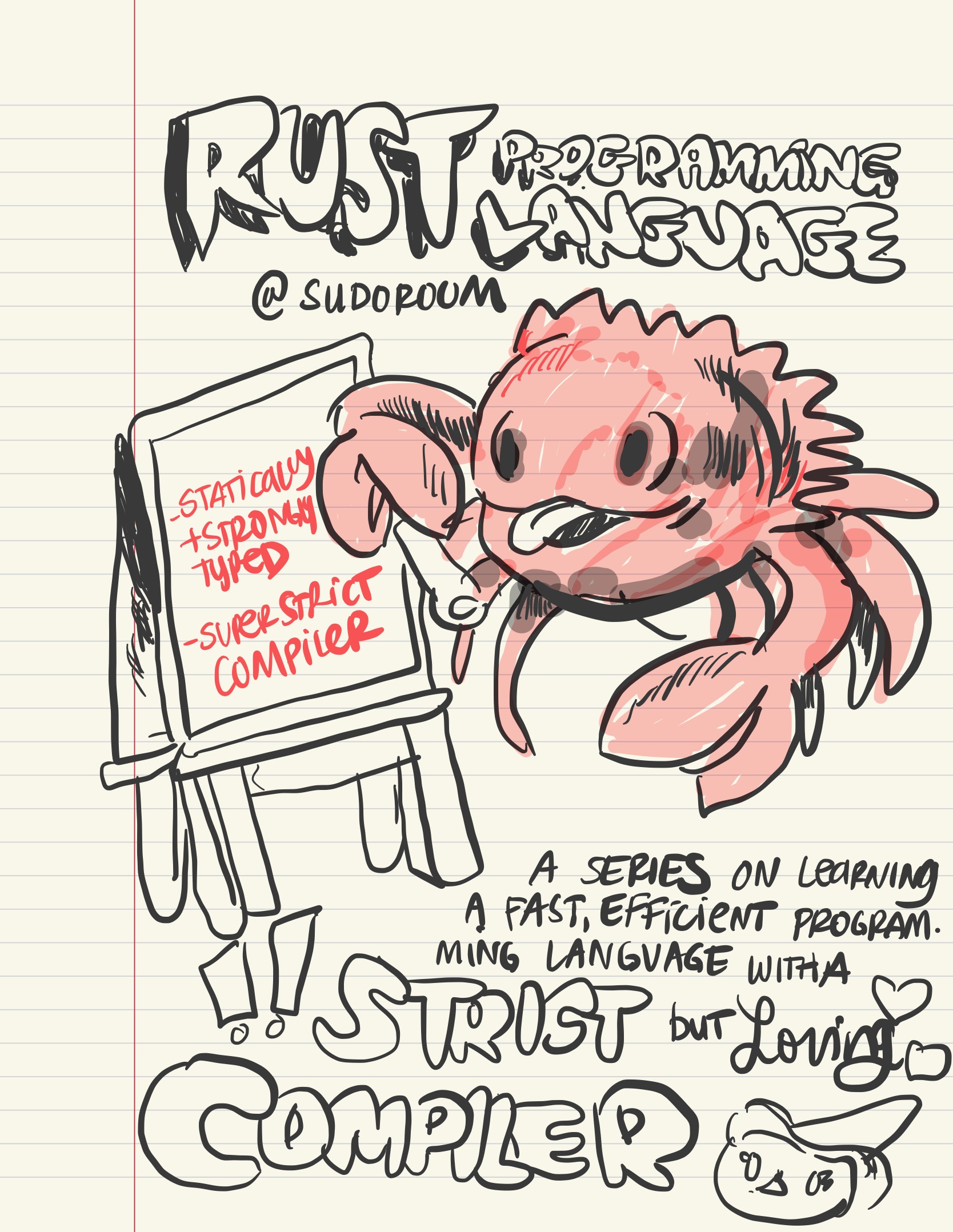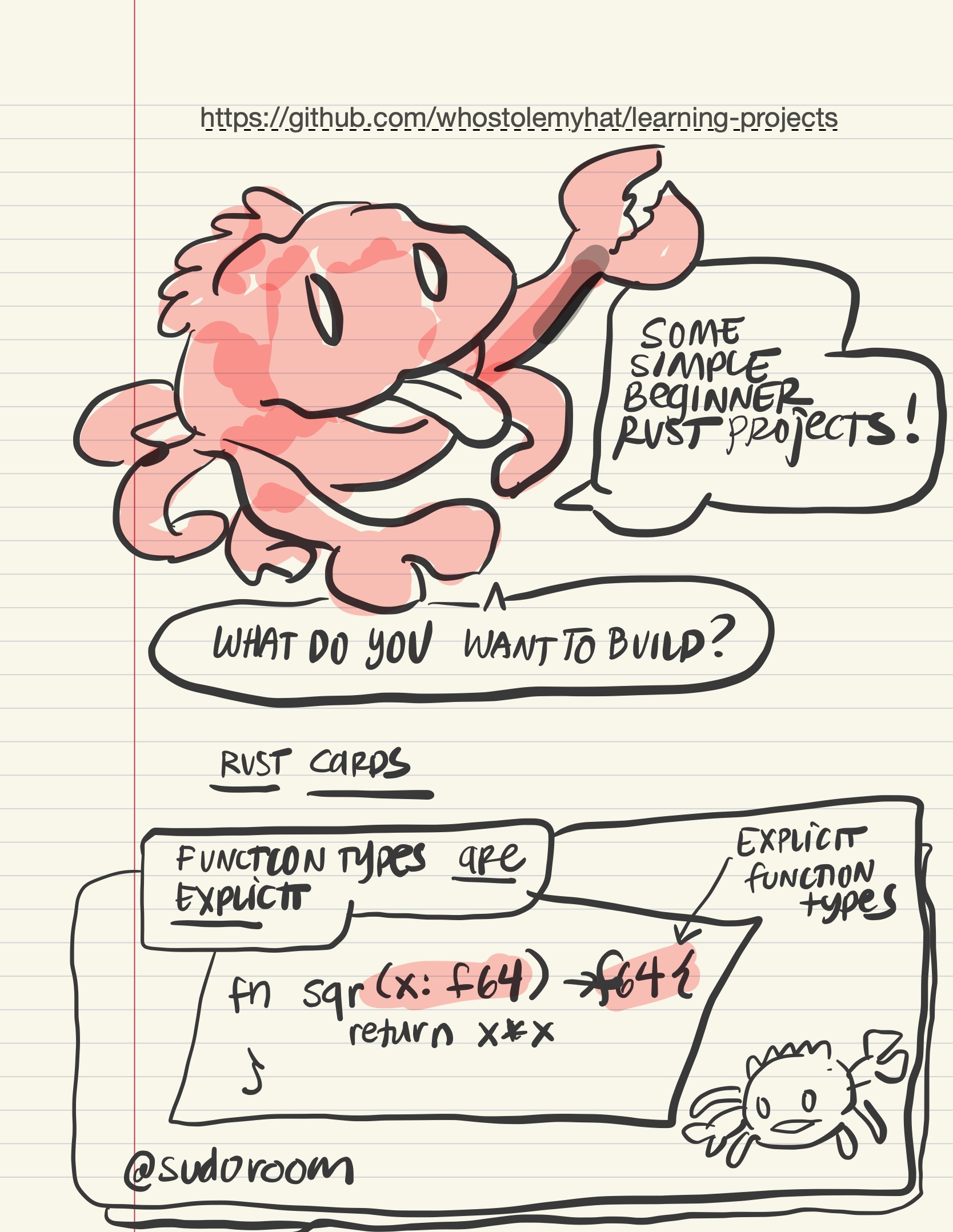Our RUST learning experiment started out well during the Women and Non Binary night. People have been suggesting we try something unique, and there are so many RUST enthusiasts around me, and so few “getting women into RUST” workshops out there, that we decided to try it out.
Responsible Use of Technology
A big potential stinker was that I wanted to learn with an offline mode on, as I am suffering from a massive case of internet addiction. I want to use technology effectively and for good, and the mass of information and distractions is seriously getting in the way of me learning new stuff.
So for this meetup as part of the “Learning how to Learn” experiment, I suggested we do this meetup with:
- No presentation slides
- No online videos
- No hybrid/remote element
- No laptops open (if possible) with people doing face to face
- People should be able to whiteboard what they learned
- No social media during the event
Is this going to Work?
I wasn’t sure what to expect, and wasn’t sure people would show up, but people did!
Nobody present was currently programming in RUST, but they knew a lot of people who did. We went through paper epub printouts of a Gentle Introduction to RUST and actually had fun comparing RUST to different programming languages.
One person worked a lot in C, another in python, I in Swift, and it was fun going over the computer science concepts like statically and dynamically typed languages, strongly typed languages, memory management and garbage collection as a way to get to know RUST.
Smelling the Flowers
In a world where there’s a lot of pressure to mint programmers out to make commercially viable products, it was fun just to look at a programming language intellectually before making a commercially viable widget thing for PROFIT.
It feels like even in school people are being pressured to make monetizable stuff without stopping to smell the flowers. There is a lot of art in computer programming so it is nice to look at it as creative and intellectual endeavor along with the make widgets for profit aspect.
Learning Analog
Working with paper printouts and no laptops worked out surprisingly well. We used the internet sparingly, through a laptop only checked by one person, and talked things out slowly before jumping online with a tablet laying flat on the desk.
Screens did not dominate our conversation, people and ideas did. We liked that.
Bringing back the Chalkboard
The chalkboard had a weird psychological effect of making things fun and spontaneous for some reason. At this point in history it is completely dissociated from work, school, or even in-person coding interviews. It’s like doing leetcode with crayons on construction paper, and was very freeing!
Also, being forced to write the concepts and code on a chalkboard forces you to really repeat and check if you understand what you’re studying. It looks cool too 🙂
Face to Face Socializing
Of course there were also the people interacting with each other. We spent a lot of time talking about our experiences in other programming languages, and describing horrific concurrency bugs in other languages that would cause people to run screaming and yelling to Rust.
One girl had a lady friend who wrote a bash script application that was really crazy large that existed just to catch bugs in her original programming bash code. It was also a nice way to talk about the importance of pointers, and understanding how they worked. Facing each other removed some disadvantages of chat and being buried behind a computer screen and not paying attention to the people around us.
This series is going well and also enabled us to connect better with each other in person. Sometimes when you’re in person or online, having that laptop with all those infinite distractions keeps you away from the mission.
Randomness and Interaction with our Physical Hackerspace
By not doing everything hybrid and online, no screens, we were able to interact not only with each other but also with our larger physical hackerspace. SudoRoom has a focus on hardware hacking mostly on Tuesday nights, and we’re surrounded by laser cutters, sewing machines, soldering irons, old electronics, computers from the 1970s and an analog synthesizer musical instrument.
We were able to talk about embedded RUST while picking up people’s half-finished projects and looking up instructions (sparingly using the web) on how to get RUST on various embedded devices. Touching different projects helped remind us that computer programs are eventually something that will be used to affect people’s physical and mental space.
Next Steps
We look forward to continuing this focused and exciting session going forward.
Next session continues with the same format next week!



